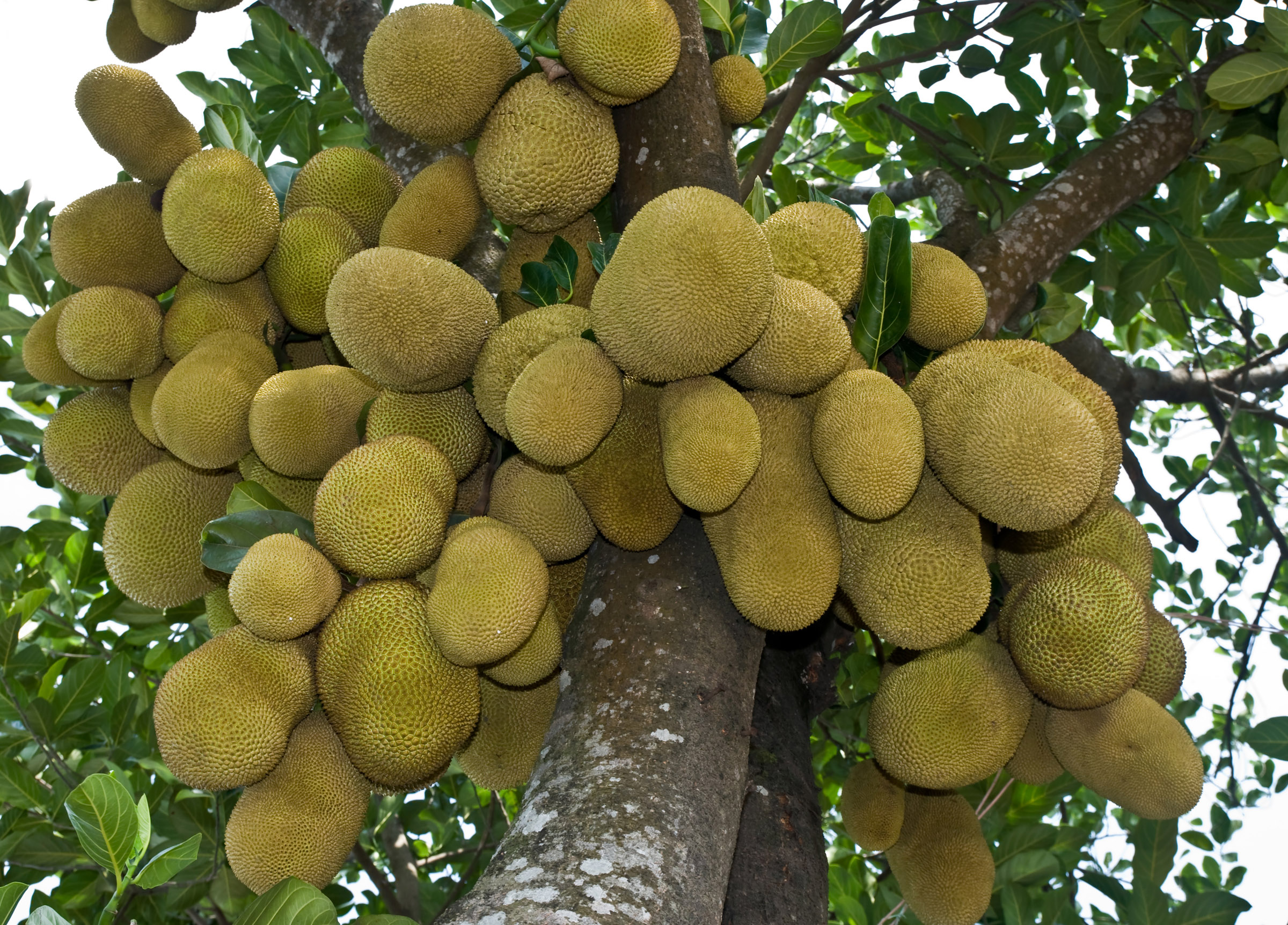Health Benefits of Jackfruit
What are the health benefits of jackfruit?
Jackfruit, a tropical fruit native to South and Southeast Asia, offers several health benefits:
- Rich in Nutrients: Jackfruit is a good source of vitamin C, vitamin A, potassium, dietary fiber, and other essential nutrients, making it a healthy addition to your diet.
- High in Antioxidants: Jackfruit contains antioxidants like vitamin C and other phytonutrients that help protect the body against oxidative stress by free radicals and inflammation, which can reduce the risk of chronic diseases.
- May Improve Digestive Health: The fiber content in jackfruit can promote regular bowel movements and improve digestion. It may also help prevent constipation and other digestive issues.
- May Boost Immunity: The high vitamin C content in jackfruit can help strengthen the immune system and protect against infections and illnesses such as the common cold, pneumonia, bronchitis and urinary tract infections (UTIs).
- May Help Lower Blood Pressure: Potassium, found in jackfruit, is known to help regulate blood pressure levels, which can reduce the risk of heart disease and stroke.
- May Have Anti-inflammatory Effects: Some studies suggest that compounds in jackfruit may have anti-inflammatory properties, which can help reduce inflammation in the body and lower the risk of chronic diseases such as arthritis.
- May Aid in Weight Loss: Jackfruit is low in calories and high in fiber, which can help you feel full and satisfied, making it a good addition to a weight loss diet.
- May Improve Heart Health: The potassium and fiber content in jackfruit can help improve heart health by lowering cholesterol levels and reducing the risk of heart disease.
It’s important to note that while jackfruit offers several health benefits, it is high in carbohydrates and natural sugars, so it should be consumed in moderation, especially by individuals with diabetes or those watching their carbohydrate intake.
What are the health risks of jackfruit?
Jackfruit is generally safe for most people when consumed in moderation as part of a balanced diet. However, there are a few potential health risks associated with jackfruit:
- Allergic Reactions: Some people may be allergic to jackfruit, especially those who are allergic to birch pollen or other fruits in the same family (such as kiwi, avocado, and chestnut). Allergic reactions can range from mild symptoms like itching and hives to more severe reactions like swelling of the face, tongue, or throat, which can be life-threatening.
- Digestive Issues: While the fiber in jackfruit can promote digestive health, consuming large amounts of jackfruit or its seeds may cause digestive issues like bloating, gas, or diarrhea in some individuals, especially those with sensitive stomachs.
- Interference with Medications: Jackfruit may interact with certain medications, especially those metabolized by the liver. If you are taking medications, especially immunosuppressants or medications for diabetes, consult with your healthcare provider before consuming jackfruit.
- High Glycemic Index: Jackfruit is high in natural sugars and has a moderate glycemic index (GI), which means it can cause a rapid increase in blood sugar levels. People with diabetes or those trying to manage their blood sugar levels should consume jackfruit in moderation and monitor their blood sugar levels carefully.
- Potential Toxins: Some parts of the jackfruit plant, such as the latex and unripe fruit, contain compounds that may be toxic if consumed in large amounts. These compounds can cause allergic reactions or digestive issues in some individuals.
Overall, jackfruit is a nutritious fruit that can be part of a healthy diet for most people. However, if you have any underlying health conditions, allergies, or concerns, it’s always best to consult with a healthcare provider or a registered dietitian before adding jackfruit to your diet.




